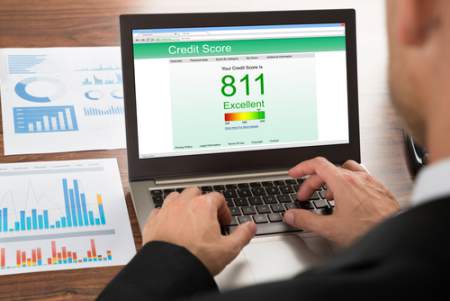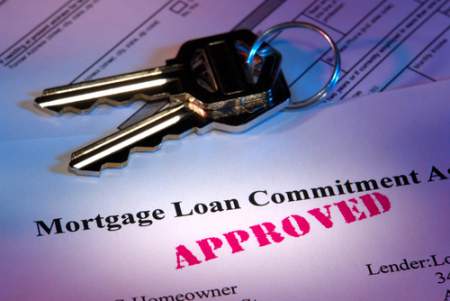Buying a home is a significant purchase, but it doesn’t need to be mysterious. There is a plethora of resources available to first time home buyers and advice is readily available. We suggest preparing for this landmark event by doing a lot of research. To help get you started, we’ve compiled six of the most important steps along the way to buying a new home.
💯 What Credit Score is Needed to Buy a House
 Credit scores are determined by your credit history using systems such as FICO and VantageScore. Ranging from 300 to 850, scores are based on things such as debt load and paying bills on time. They indicate your trustworthiness to lenders and financial institutions and can go a long way to determining the terms of a mortgage agreement.
Credit scores are determined by your credit history using systems such as FICO and VantageScore. Ranging from 300 to 850, scores are based on things such as debt load and paying bills on time. They indicate your trustworthiness to lenders and financial institutions and can go a long way to determining the terms of a mortgage agreement.
A score of 750 to 900 is considered to excellent; a score of 700 to 749 is good, and a score of 650 to 699 is fair. Anything lower may need a bit of repair. You can find out your score by requesting it directly from credit bureaus (Equifax, TransUnion and Experian), or by using financial apps such as CreditKarma or Borrowell. According to CNBC, a minimum score of at least 760 is required to purchase a home in many instances. Most importantly, the higher the score, the better the interest rates a lender is likely to offer on a mortgage.
💰 How Much Money Should I Save to Buy a House
According to CNBC’s Emmie Martin, “To truly afford a house you’ll want to be able to comfortably cover six factors: the down payment, closing costs, moving expenses, repairs and maintenance, the first few months’ mortgage payments and your emergency fund.”
Calculating the down payment is easy – you want to set aside at least 20% of the average purchase price of a home in your chosen area. Lesser percentages could trigger costly mortgage insurance requirements. Add another 5% to that figure to cover related closing costs.
🙋♀️ Finding a Real Estate Agent to Buy a House
If you are ready to buy, consider working with a buying agent (which is different from a listing agent, who typically works with the seller). For any number of reasons, you should choose your agent carefully and make sure they are a good fit for you and your needs before making a commitment.
Finding an agent shouldn’t be difficult. Start by asking friends or family for a recommendation or, if you are remaining in your current neighborhood, work with a reputable local broker. Make sure your agent knows what you’re looking for and can explain things clearly.
A good real estate agent will show you homes based on your requirements, represent you to the vendor, draw up documents, and generally protect your interests and guide you through the home buying process.
📝 Why Get Pre-Approved for a Mortgage Loan
 Mortgage pre-approval is a good idea as a signal to vendors that you are serious and ready to purchase a home. It is also the beginning of a relationship with a lender or financial institution, one that can set the stage for negotiating future terms.
Mortgage pre-approval is a good idea as a signal to vendors that you are serious and ready to purchase a home. It is also the beginning of a relationship with a lender or financial institution, one that can set the stage for negotiating future terms.
Pre-approval can also be an important tool for determining how much house you can afford and what monthly expenses might be involved in carrying a mortgage. Knowing your buying power ahead of time can streamline the purchasing process and eliminate a certain amount of stress due to doubt.
💲 How to Make an Offer on a House
Anyone can make a purchase offer to buy a home, but it must conform to certain standards which can change from region to region. It is highly advisable to work with a realtor (and/or a lawyer) on making an offer to purchase a home.
Offers are binding legal documents that often include a target date for closing, the sale price, a legal description of the property, amount of deposit, provisions for final inspections, who pays for which closing costs, and other terms and contingencies. Failure to conform to local regulations or to fulfill the terms of the offer can lead to added legal fees and penalties.
Once the document has been drawn up and reviewed, the real estate agent will present it to the vendor to accept, decline or send back for revision.
✍️ What Happens After an Offer is Accepted on a House
Once an offer to buy is accepted, the process of finalizing the sale begins. This may include any final inspections or other contingency items and locking in financial arrangements. Always be prepared to walk away from buying a home if you discover major defects that cannot be addressed, or if appropriate financing cannot be obtained. Chances are though that you’ll make it through closing to celebrate your new home purchase with a well-earned glass of champagne.


